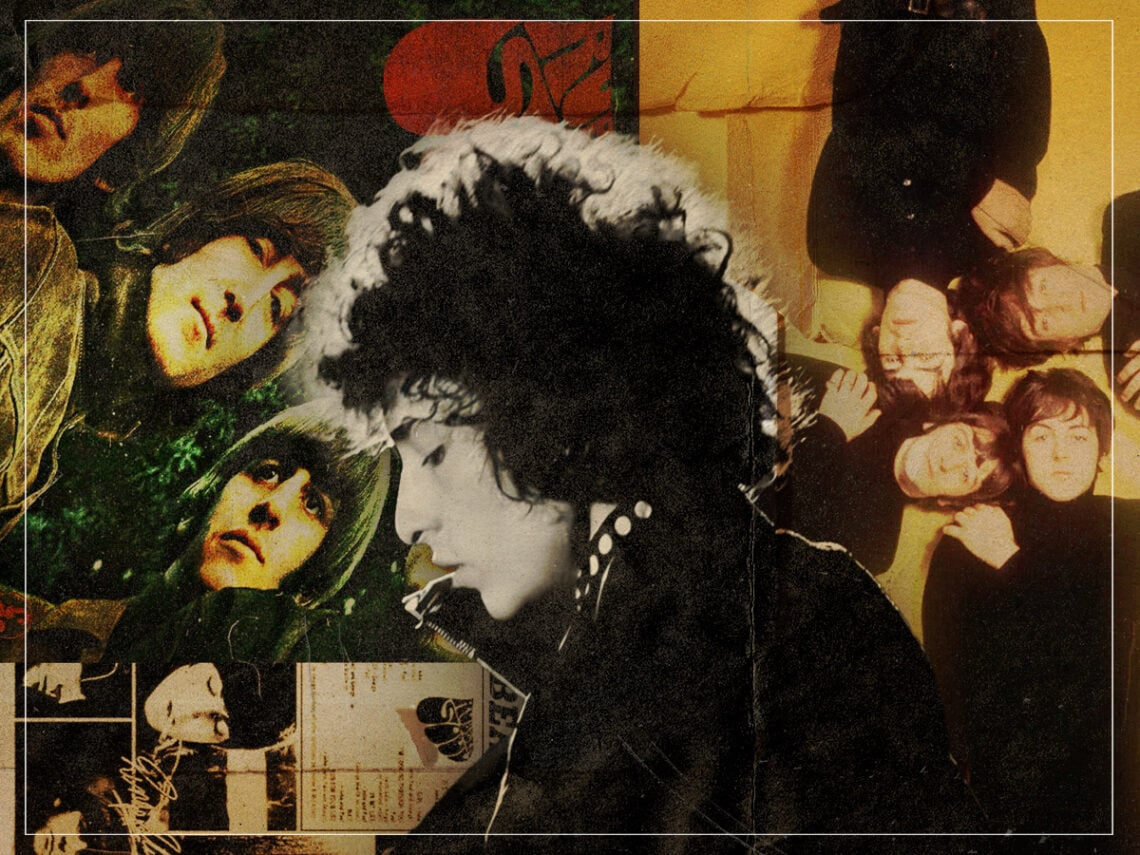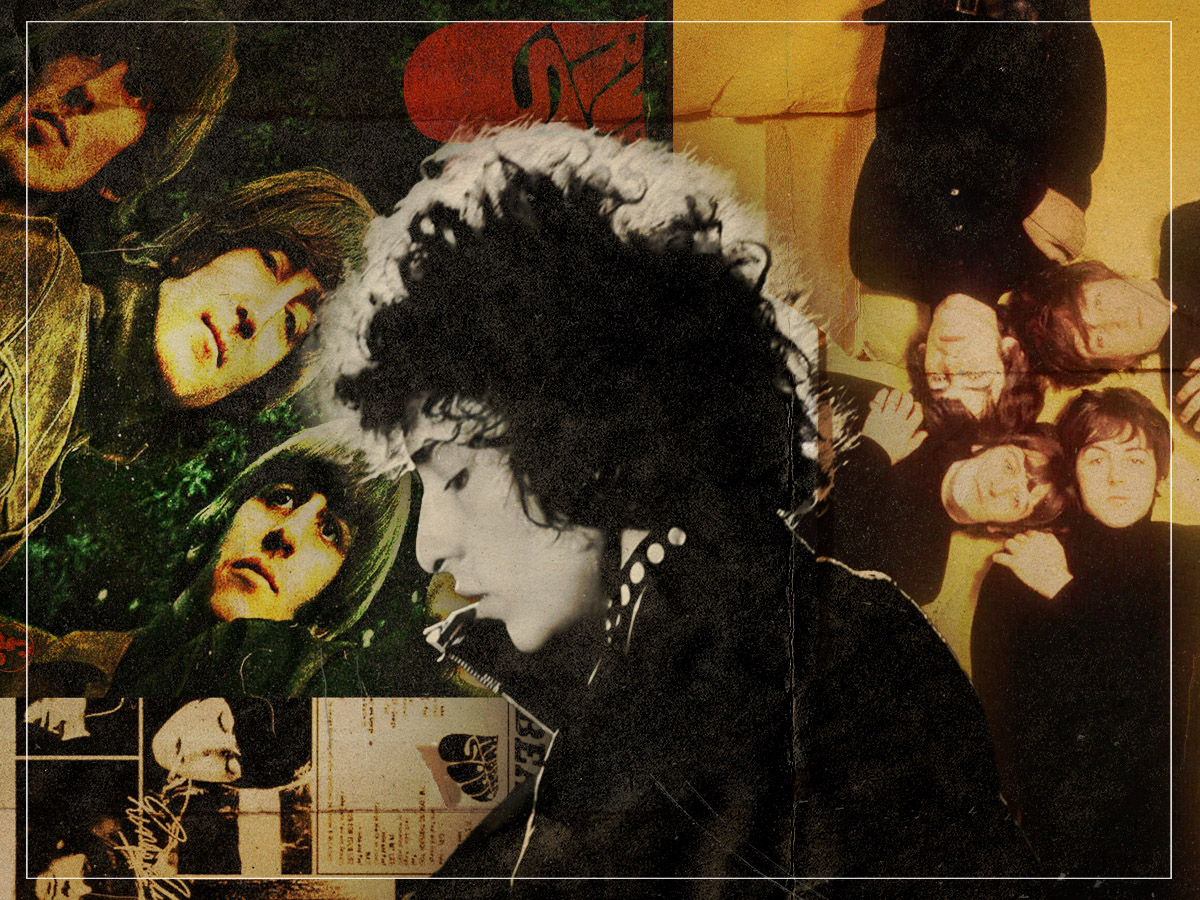
(Credits: Far Out / Bent Rej / Apple Corps)
Sat 10 May 2025 19:00, UK
I know it sounds stupid, but having lived in the echo chamber of music fandom for the past several years, I think I truly forgot how big The Beatles were. Yes, I know, I am aware of the stupidity of that statement. But their ever-presence in my life has grown to feel somewhat like a familiar friend, and the bond I’ve forged with their songs has robbed me of the memory that they are the most influential band of all time.
Allow me to provide some context. My favourite Beatles album is Revolver, because my favourite song is ‘Here, There and Everywhere’, and my favourite Beatle is Paul McCartney. Between that song, McCartney’s melodies and the album’s blurred lines of pop and psychedelia, Revolver succinctly encompasses my love for The Beatles as a band. And like any cherished piece of art, it feels deeply personal to me and the memories I have forged alongside those songs.
So last night, when I happened to flick on their documentary The Beatles: Eight Days a Week – The Touring Years and was watching a music historian waxing lyrical about ‘Tomorrow Never Knows’, I felt like my personal admiration was compromised. Who was this critic, and how did they get their hands on Revolver? It was at that exact moment that I understood my fandom-based delusion and snapped out of my funk to rejoin reality and remind myself of the simple fact I had forgotten in the opening paragraph.
But I guess this is the nature of fandom and genius. The latter has a way of making the former feel deeply personal, yet achieving a widespread universality of that feeling to inspire a legion of devoted and emotional fans.
It’s a paradox I’ve often wondered whether musicians are aware of. Because if anyone feels the jarring juxtaposition between the intimacy and universality of music, then surely it is the artists themselves? While McCartney’s songs feel inherently linked to my memories, they were born from his, and therefore, immediately lose their intimacy when pressed on vinyl.
So surely, it’s at that moment that icons like The Beatles perhaps turned away from their own work and soaked up the art of their contemporaries. Given the frequency with which they were operating in their heyday, it’s no surprise that the intellectualism of Bob Dylan spoke to them on a deeper level. The Fab Four began to idolise the work of the counterculture legend in the 1960s, for he was stretching the boundaries of conventional songwriting in a way their respective studio innovation had never witnessed.
While The Beatles spent most of the early 1960s penning blues-laden pop songs, the introduction of Dylan’s profound and introspective lyricism illuminated a creative path for the band to follow, one where intellectualism and commercialism could potentially walk hand-in-hand.
So when a chance encounter to kick back with the folk icon presented itself, the band jumped at the chance and, to McCartney’s memory, it didn’t disappoint. He recalled, “He was our idol. It was a great honour to meet him, we had a crazy party that night we met. I thought I had gotten the meaning of life that night.”
The fateful night arguably altered the course of music history forever. At this point, the band’s rather green and adolescent disposition harboured a hidden desire to break out into something more psychedelic and experimental, which we’d come to see on later albums. While the icons chewed the fat backstage, Dylan subtly handed Ringo Starr what is rumoured to be the band’s first joint.
Somewhere between what Starr described as an episode of getting high and laughing “their asses off” was the beginning of a chain reaction that would transform the bright-eyed lover boys of global pop into the fearless leaders of a psychedelic revolution.
While their brush with Dylan that night admittedly changed McCartney’s world, it’s less apparent in his work than it is in that of his more esoteric counterparts. Because McCartney was always of a chirpier disposition, even in 1964, when the gloss of the band’s touring had started to chip away, and their status as mega stars was turning more into tortured artists, crippled by the demands of commercialism.
In turn, Lennon’s lyrics swiftly turned from loving to loathing, with introspective gems like ‘Help’ hinting towards a more ruminative future. In fact, later that year, he penned ‘Norwegian Wood’, from Rubber Soul, which was not only a sonic turning point for the band but a sonic footprint in the realms of Dylan’s soundscape. So much so, it was rumoured the singer exclaimed, “What is this? It’s me, Bob. [John’s] doing me!” But Lennon later elaborated Dylan’s influence on Rubber Soul, saying, “Up till then, it had all been sort of glib and throwaway. And that was the first time I consciously put my literary part of myself into the lyric. Inspired by Kenneth Allsop, the British journalist, and Bob Dylan.”
It’s truly hard to understate the influence the folk legend had on the band, for the darker vignette that framed large parts of the bands writing in the late ’60s was undoubtedly informed by Dylan. While receiving a joint from your elders is flippantly used as a symbol of graduating from adolescence to adulthood, in the case of this encounter, it proves to be worryingly true. What followed was a more mature approach to songwriting informed by a more cynical world view.
In George Harrison’s case, Dylan’s introduction only poked the burning embers of creative curiosity that he harboured in the middle part of the decade. While he would have his moment in the studio sun, it wasn’t until his solo career that he fully had the chance to doff his cap to Dylan. When he released All Things Must Pass, not only did he raise a middle finger to McCartney and Lennon by proving his own material was as stellar as theirs, but he took his time to prove that Dylan had had an effect on him, too. On the sixth track, he rearranged Dylan’s hit ‘If Not For You’, as well as roped in the icon to help write the album’s opening track, ‘I’d Have You Anytime’.
While the band all fawned over Dylan’s respect, it was in fact Harrison whom he harboured reciprocal feelings for. Underneath the latter’s steely gaze, he saw something perhaps his peers didn’t—a nuanced and complicated level of genius that mirrored his own take on songwriting. And so, it was Harrison who enjoyed the brief privilege of being Dylan’s bandmate in the fleeting project, the Traveling Wilburys.
But regardless, Dylan was the conduit into a more complex world for the then pop heroes. And while the reference of weed as a gateway drug is often linked to the darker habits of addiction, for the world’s most influential band, it was merely a gateway into sonic greatness.
Related Topics
Subscribe To The Far Out Newsletter

